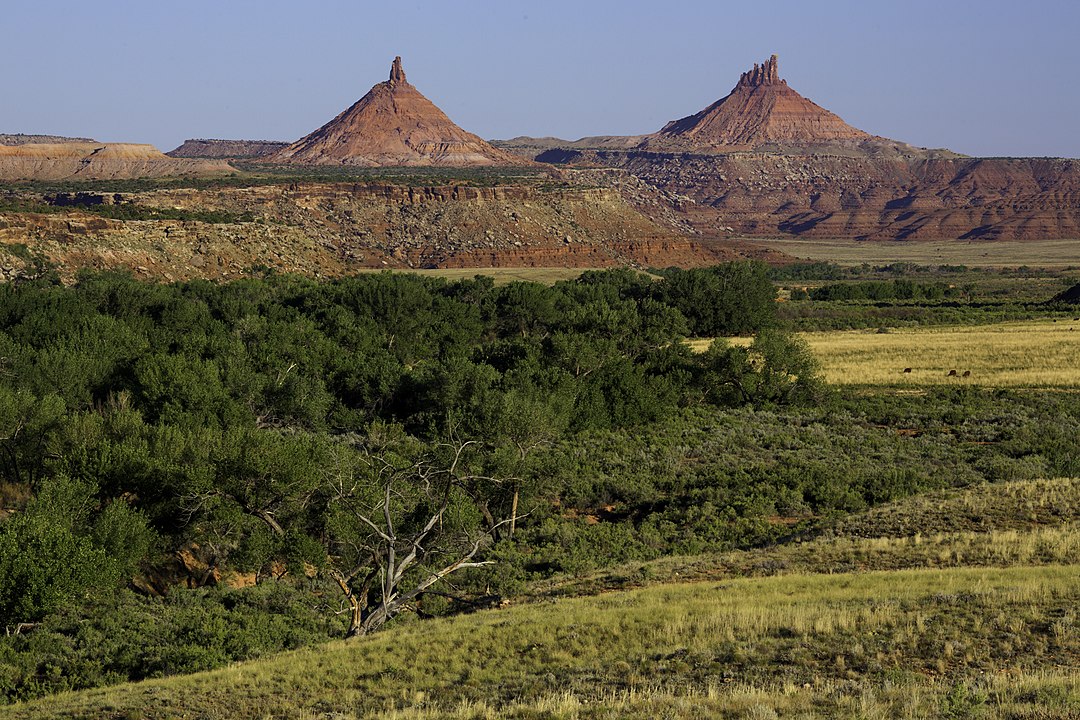
- Details
- By Jenna Kunze
On Saturday, the Biden Administration signed an historic cooperative agreement with five tribes for the co-management of Bears Ears National Monument in Utah.
The agreement was signed between the Bureau of Land Management, U.S. Forest Service, and the five tribes who were original stewards of the monument: Hopi Tribe, Navajo Nation, Ute Mountain Ute Tribe, Ute Indian Tribe of the Uintah and Ouray Reservation, and the Pueblo of Zuni.
The objective of the cooperative agreement is to “coordinate on land use planning and implementation,” the document reads.
Following the signing on Saturday, each tribe traveled up Highway 261 to attend a sign unveiling ceremony, which includes insignias from each tribe.
“Today, instead of being removed from a landscape to make way for a public park, we are being invited back to our ancestral homelands to help repair them and plan for a resilient future.
Bears Ears Commission Co-Chair and Lieutenant Governor of Zuni Pueblo, Carleton Bowekaty, said in a statement. “We are being asked to apply our traditional knowledge to both the natural and human-caused ecological challenges, drought, erosion, (and) visitation. What can be a better avenue of restorative justice than giving Tribes the opportunity to participate in the management of lands their ancestors were removed from?”
On October 8, 2021, President Biden restored the 1.36 million acres of the Bears Ears National Monument, a large portion of which was previously reduced under former president Donald Trump. Included in Biden’s order was the re-establishment of a Bears Ears Commission, with an elected tribal member from one of each of the five local tribes.
More Stories Like This
Native News Weekly (August 25, 2024): D.C. BriefsUS Presidents in Their Own Words Concerning American Indians
2026 Native American 40 Under 40 Class Announced
Monday Morning: (January 5, 2026): Articles You May Have Missed This Past Weekend
Native News Weekly (January 4, 2026): D.C. Briefs
Help us defend tribal sovereignty.
At Native News Online, our mission is rooted in telling the stories that strengthen sovereignty and uplift Indigenous voices — not just at year’s end, but every single day.
Because of your generosity last year, we were able to keep our reporters on the ground in tribal communities, at national gatherings and in the halls of Congress — covering the issues that matter most to Indian Country: sovereignty, culture, education, health and economic opportunity.
That support sustained us through a tough year in 2025. Now, as we look to the year ahead, we need your help right now to ensure warrior journalism remains strong — reporting that defends tribal sovereignty, amplifies Native truth, and holds power accountable.
 The stakes couldn't be higher. Your support keeps Native voices heard, Native stories told and Native sovereignty defended.
The stakes couldn't be higher. Your support keeps Native voices heard, Native stories told and Native sovereignty defended.
Stand with Warrior Journalism today.
Levi Rickert (Potawatomi), Editor & Publisher

